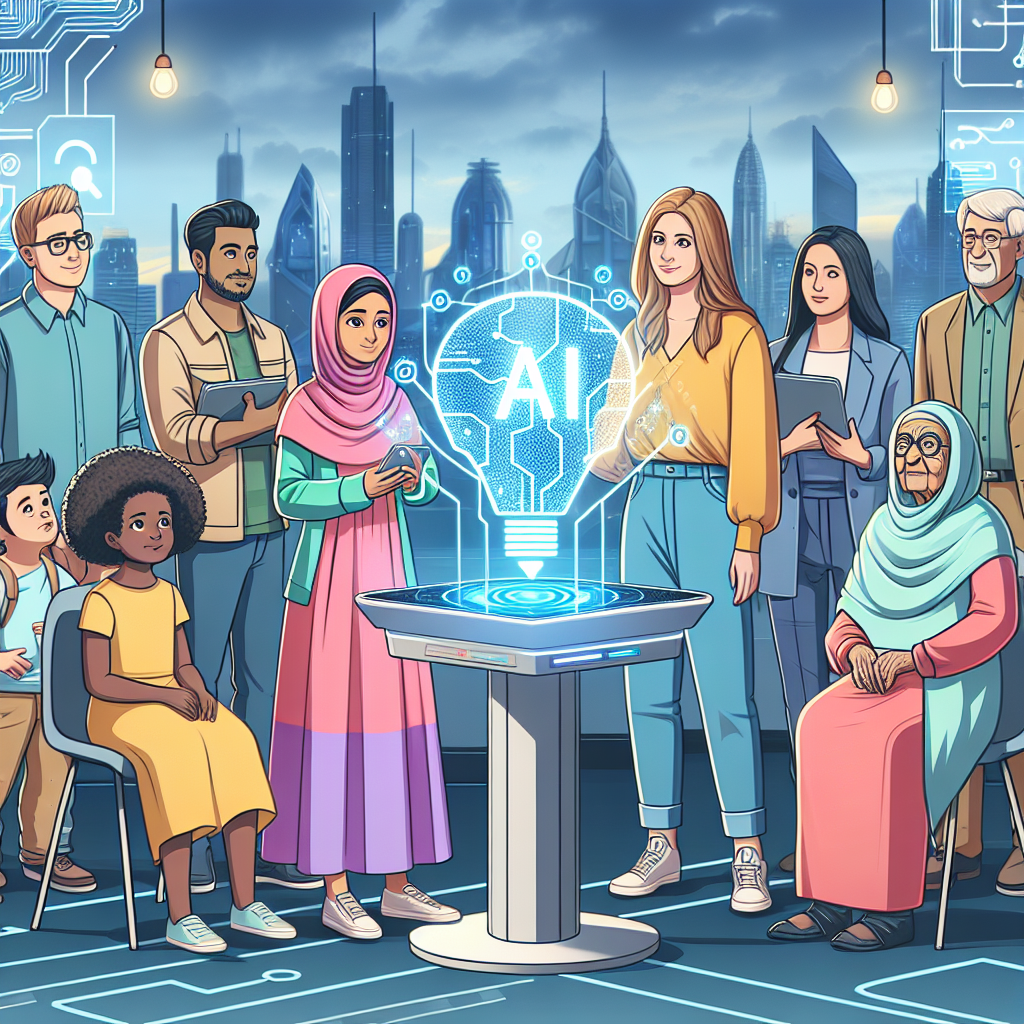In recent years, artificial intelligence (AI) has become a hot topic in technology and business circles. From self-driving cars to personalized shopping recommendations, AI is changing the way we live and work. However, many people still perceive AI as a complex and exclusive technology, accessible only to a select few with advanced technical skills. This perception has led to a growing concern about the democratization of AI and the need to make this powerful technology accessible to all.
Democratizing AI means making it available and usable by a wide range of people, regardless of their technical background or expertise. It involves breaking down barriers to access and ensuring that AI technologies are inclusive, transparent, and fair. By democratizing AI, we can empower individuals and organizations to harness the full potential of this transformative technology for the benefit of society as a whole.
There are several key ways in which AI can be democratized:
1. Education and Training: One of the most important steps in democratizing AI is to provide accessible education and training opportunities for individuals at all levels of expertise. This includes offering online courses, workshops, and tutorials that cover the basics of AI and machine learning, as well as more advanced topics for professionals in the field. By equipping people with the knowledge and skills they need to work with AI, we can help bridge the gap between technical experts and the broader community.
2. Tools and Platforms: Another important aspect of democratizing AI is to develop user-friendly tools and platforms that make it easier for non-experts to use AI technologies. This includes creating drag-and-drop interfaces, pre-built models, and automated workflows that simplify the process of building and deploying AI applications. By lowering the barrier to entry, we can enable a wider range of people to benefit from the power of AI.
3. Ethical and Responsible AI: Democratizing AI also involves ensuring that the technology is used in a responsible and ethical manner. This includes addressing bias and fairness issues in AI algorithms, as well as promoting transparency and accountability in AI development and deployment. By fostering a culture of ethical AI practices, we can build trust and confidence in the technology and its potential to benefit society.
4. Collaboration and Openness: Finally, democratizing AI requires a collaborative and open approach to innovation. This means sharing data, code, and best practices with the broader community, as well as fostering partnerships between industry, academia, and government. By working together to advance AI research and development, we can accelerate progress and ensure that the benefits of AI are shared by all.
FAQs:
Q: What are some examples of democratized AI technologies?
A: There are many examples of democratized AI technologies that are making technology accessible to all. These include chatbots that help businesses automate customer service, image recognition tools that enable photographers to organize their photos, and predictive analytics platforms that empower decision-makers to make data-driven choices.
Q: How can I get started with AI if I don’t have a technical background?
A: There are many resources available for individuals with limited technical expertise to get started with AI. Online courses such as Coursera and Udemy offer introductory courses in AI and machine learning, while platforms like Google Cloud and Microsoft Azure provide user-friendly tools for building and deploying AI applications.
Q: What are some ethical considerations to keep in mind when using AI?
A: When using AI, it is important to consider ethical considerations such as bias, fairness, and privacy. This includes ensuring that AI algorithms are trained on diverse and representative data, as well as being transparent about how AI decisions are made and providing mechanisms for accountability and redress.
In conclusion, democratizing AI is essential for unlocking the full potential of this transformative technology and ensuring that it benefits society as a whole. By providing accessible education and training, user-friendly tools and platforms, ethical and responsible practices, and a collaborative and open approach to innovation, we can make AI technology accessible to all and empower individuals and organizations to harness its power for the greater good.

